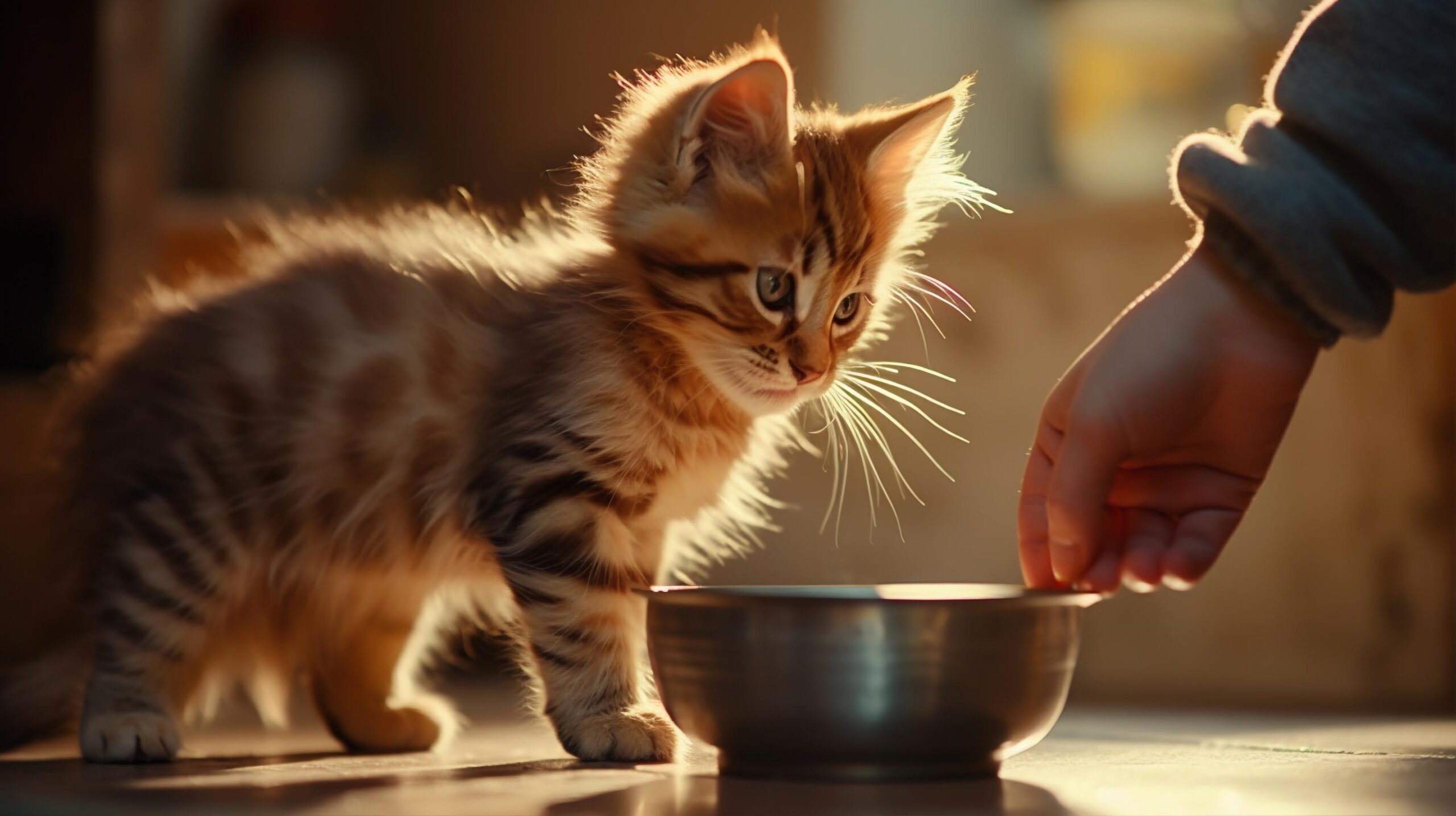How Long Can Kittens Go Without Food? Kittens are gentle little creatures who need constant attention, particularly during their formative years. Feeding kittens is one of the critical aspects of care that you should be most aware of, and this requires a more detailed answer: How Long Can Kittens Go Without Food? This information should be known to all cat owners and animal caretakers.
Also Read: When Does A Kitten Start Eating Food and Drinking Water?
The Critical Early Weeks: How Long Can Kittens Go Without Food
Kittens are born with a limited nutritional pad. They weigh very little and require sufficient food to grow quickly. Even so, kittens should not go without food for very long, as opposed to adult cats. These little guys were built to eat, and if a feeding is skipped, it could be fatal. How Long Can Kittens Go Without Food is an important question.
Also Read: Bootle Feeding Kittens for Better Growth – Kittens Feeding
Newborn to One Week Old
Without Mama, they would likely already be dead and newborn kittens are especially vulnerable. They should be nursing every 2-3 hours, only one week. No food during this time can cause low blood sugar (which could result in confusion and drowsiness), dehydration, and even death. This is why they have small bodies and few energy reserves to keep them going when not eating because being warm (and maintaining body functions) is next to impossible for something so tiny.

One Week to Three Weeks Old
Kitten Feeding:
How Long Can Kittens Go Without Food? Complete Guide to Feeding Kittens As kittens age, they can go a little longer between meals. It would help if you still woke them to feed every 3-4 hours by the end of your second week. Now, their digestive systems have begun to grow with them, but they still need the milk of the mother or alternatives if there is no one. That said, a kitten should never go more than 4-6 hours without eating before symptoms of distress such as lethargy and collapse can begin.
Also Read: Best Food for Kittens: A Guide to Nutrition for Growing Cats
How to Tell If a Kitten Is Sick
It is essential to know when a kitten needs help from hunger. A kitten not getting enough nutrition may become:
Lethargy (a sleepy or unresponsive kitten): Low blood sugar levels and dehydration.
Weakness:
The inability to walk or uncoordinated movements can significantly indicate acute malnutrition.
Crying:
Cries can be a good indication that the baby is hungry or has some discomfort.

Dehydration:
Look for a dry mouth; check if the kitten is peeing less (urine will be darker) than usual.
If you notice any of these indicators, take action immediately. If things get serious, a trip to the vet might be in order.
Also Read: Best Wet Cat Food for Kittens: What to Feed Your Growing Feline
Regular Feedings are Key
The Blow-by-Blow Kittens:
The nutritional prerequisite of kittens is extreme, irrespective of how quickly they grow. Their body needs regular Healthy Kittens Food for their growth. Their diet depends highly on their immune system, development, and overall health. This is why regular feeding we must:
The progress of growth:
The first few weeks are when the kittens grow most. A healthy diet perfectly develops organs, muscles, and bones.
Immune System:
Nutrients are needed to build a strong immune system so that the body can resist infection.
High energy:
Feeding several times daily fuels the active and curious kittens.
Also Read: Top 5 Homemade Kitten Food Recipes for Optimal Health
If Kitten Refuse To Eat, Then What?
A kitten not eating is a concern that needs to be evaluated and treated. Things You Can Do

Health Issues:
When a pet loses its appetite, it may be sick. Common diseases are gastrointestinal illnesses, infections, or parasites. If a kitten is consistently off-feeding, then it’s time for a check-up at the vet.
Feed Correct Food:
Use a high-quality Baby Food for Kitten’s formula In case the mother’s milk is unavailable. Kittens need a specific diet that is different from adult cats. Find formulas high in protein and fats.
Warmth:
If the kittens have no mother, they may not feel like eating if it is too cold. Keep the area where your kitten lives at a cosy temperature.

Feeding:
Gently stimulate the mouth and then offer a small amount of formula using a syringe. They usually feed after a little perseverance.
Also Read: What to Feed Kittens Without Mother?
A once of Prevention is Worth a Pound of Cure
Avoiding feeding problems begins by knowing what a kitten needs and doing things right. If you are fostering or caring for an orphaned kitten, be prepared with the right equipment and information on feeding them. We also recommend regular visits to the vet to ensure everything is growing and working as it should be.
Conclusion
Kittens are very fragile and have specific dietary needs that must be met carefully to ensure their survival and well-being. Newborn kittens should be fed every 2-3 hours, while slightly older ones may require feeding every 3-4 hours. Always watch for signs of hunger and distress, and consult your vet if you’re unsure about their health. By following essential tips for kittens and providing the right care and attention, you can help your little one grow into a healthy, happy cat.
Let’s Connect-Find us on Pinterest!

